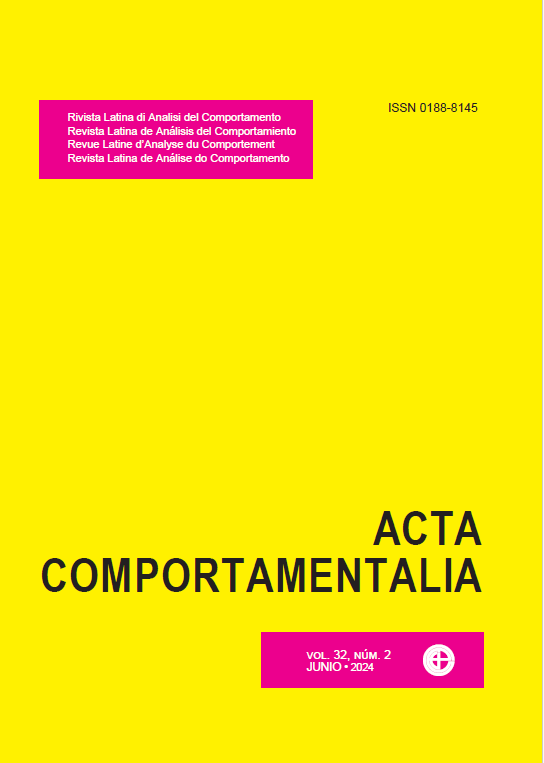Effects of Feedback Modality Upon the Acquisition and Transfer of a Second-Order Conditional Discrimination
DOI:
https://doi.org/10.32870/ac.v32i2.88352Keywords:
abstract stimulus control, conditional discrimination, differential outcomes effect, transfer, humansAbstract
Two groups of participants were exposed to a second-order matching-to-sample task and various transfer tests with familiar and novel stimuli and matching relations. Correct and incorrect matching responses produced feedback in visual, written or auditory modalities for both groups. Each feedback modality was correlated with a particular sample stimulus for the experimental group, whereas for the control group feedback modalities were uncorrelated with sample stimuli. The auditory feedback produced low performances in the control group only. In general, the speed of acquisition during training and the percentage of correct responses in transfer tests were higher for the experimental group than for the control group. For the experimental group performances in transfer tests were unaffected by the familiar or novel character of stimuli or the added matching relation. Results suggest the occurrence of a differential outcomes effect that seems to be immune to linguistic behavior that presumably mediated the performance in the tests.
Downloads
Downloads
Published
How to Cite
Issue
Section
License

<a rel="license" href="http://creativecommons.org/licenses/by-nc-sa/4.0/"><img alt="Licencia de Creative Commons" style="border-width:0" src="https://i.creativecommons.org/l/by-nc-sa/4.0/88x31.png" /></a><br />Este obra está bajo una <a rel="license" href="http://creativecommons.org/licenses/by-nc-sa/4.0/">licencia de Creative Commons Reconocimiento-NoComercial-CompartirIgual 4.0 Internacional</a>.






